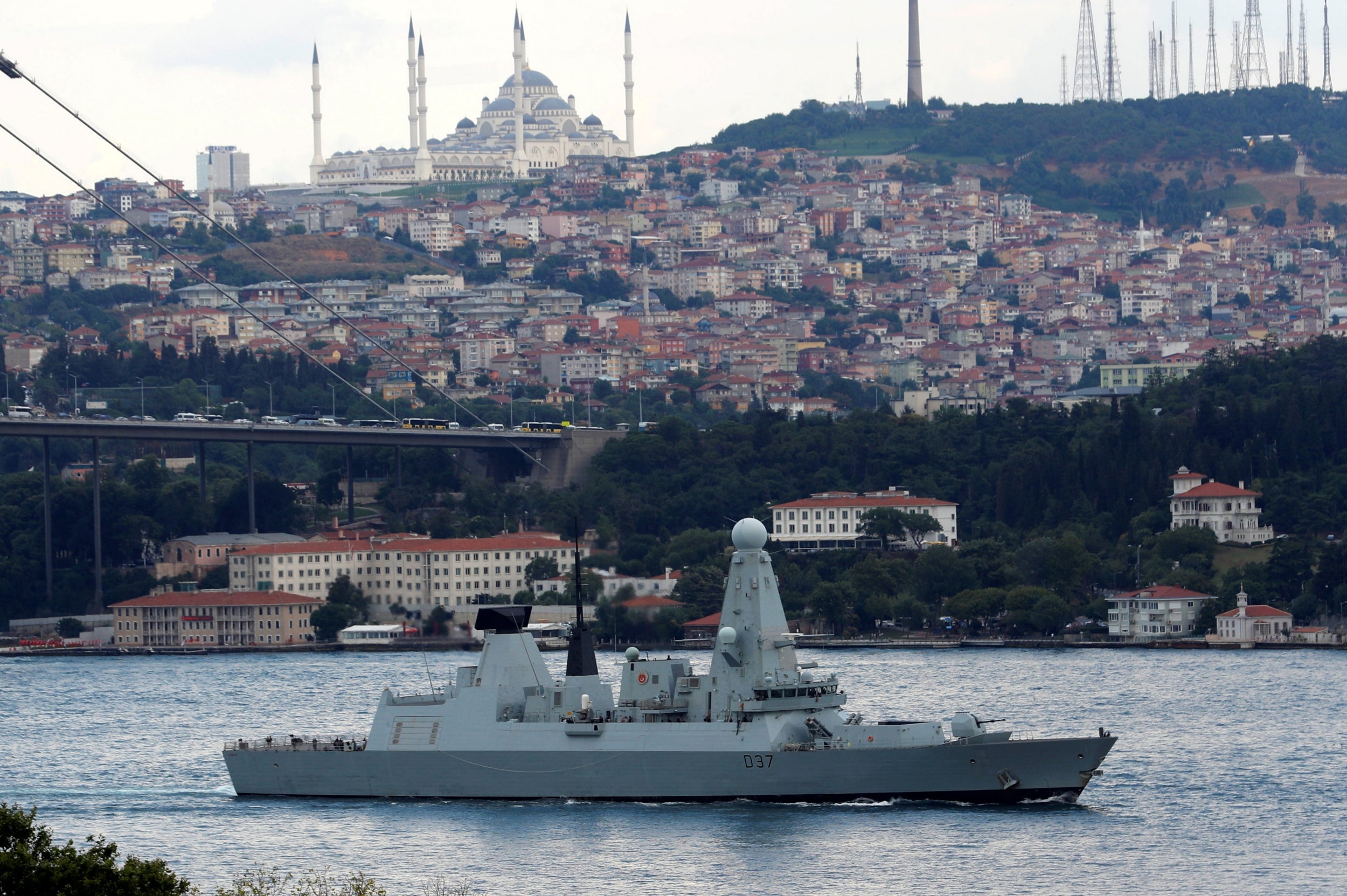With an unstable ally in Trump, Britain is making itself a target in the Gulf
Analysis: From Iran’s viewpoint, a slow-burn crisis just below the level of outright warfare may be least bad option

Your support helps us to tell the story
From reproductive rights to climate change to Big Tech, The Independent is on the ground when the story is developing. Whether it's investigating the financials of Elon Musk's pro-Trump PAC or producing our latest documentary, 'The A Word', which shines a light on the American women fighting for reproductive rights, we know how important it is to parse out the facts from the messaging.
At such a critical moment in US history, we need reporters on the ground. Your donation allows us to keep sending journalists to speak to both sides of the story.
The Independent is trusted by Americans across the entire political spectrum. And unlike many other quality news outlets, we choose not to lock Americans out of our reporting and analysis with paywalls. We believe quality journalism should be available to everyone, paid for by those who can afford it.
Your support makes all the difference.Britain is sending a second warship to the Gulf to protect its oil tankers from Iranian gunboats. HMS Duncan, a destroyer currently in the Mediterranean, will join HMS Montrose, a frigate, next week.
Britain is on the edge of becoming involved in a conflict in which it can only deploy limited forces, but it could become the target of Iranian retaliation for any US escalation of the conflict.
In a sense, this may have already happened, if the US was indeed behind the royal marine commandos taking over an Iranian oil tanker allegedly bound for Syria off Gibraltar. It is difficult to take seriously the British claim that they carried out such a provocative act solely because of a request from the Gibraltarian authorities and in order to enforce EU sanctions on Syria.
The Iranians are demanding that the British release the Grace 1 tanker and it is probable that Iranian boats harassed the British Heritage tanker as an act of retaliation. An Iranian official warned the UK not to get involved in “this dangerous game”.
But Britain is already involved in the dangerous game and it is possible that the Iranians may find it less risky to act against Britain, whom they denounce as a US proxy, than directly against the US.
As in Iraq after 2003 and Afghanistan after 2006, Britain is becoming engaged in a conflict in which it is only a bit player, but must cope with the same dangers as the US. Some commentators seek comfort by recalling that a coalition of western maritime powers protected Kuwaiti tankers during the tanker war in the Iran-Iraq war in the 1980s.
At that time, it was Iran that was isolated, while today it is the US and Britain who are short of reliable allies who will do more than cheer from the side lines – as Israel and Saudi Arabia are likely to do. Already the United Arab Emirates is backing away from a confrontation with Iran, saying that is unclear if Iran placed small mines on tankers off the UAE coast in June, and it is drawing down its military forces in Yemen.
Iraq is at heart on the side of Iran as the only other significant Shia-majority power, while Qatar has its own long-term confrontation with Saudi Arabia. EU and other states will be dubious about President Trump – the great disrupter – taking on the role of a coalition builder and will be nervous of where he may be leading them in the Gulf.
From the British point of view, the crisis in the southern Gulf has parallels with Britain’s involvement on the US side in the invasion of Iraq in 2003. It is making itself a target without knowing where the US is heading and to what extent Trump – along with his more hawkish lieutenants – are prepared for a limited or full-scale war with Iran. The furore over former UK ambassador to the US Sir Kim Darroch’s forced departure from Washington shows just how limited Britain’s influence is in the White House.
From the Iranian viewpoint, a slow-burn crisis just below the level of outright warfare may be the least bad option. It is an improvement over waiting for Iran to be slowly strangled by economic sanctions which are Trump’s favourite method of putting pressure on enemies and friends alike.
Neither side wants a war but that does not mean it will not happen because every confrontational incident has the potential to escalate out of control. Britain says it wants to de-escalate, but the sending of a second naval vessel will be seen by Iran as the opposite of that. There is also the question of what to do with the Iranian tanker that it has already seized?
Join our commenting forum
Join thought-provoking conversations, follow other Independent readers and see their replies
Comments